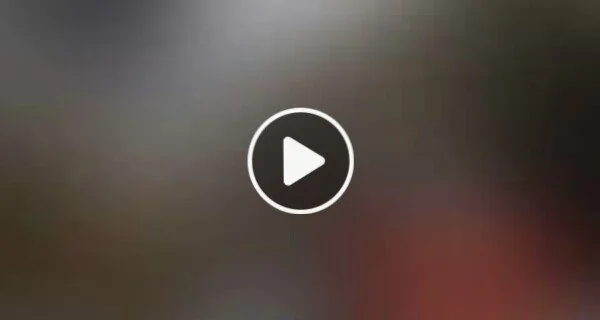
Recently, Ajit Pawar, one of the high-ranking political leaders of India, has come out openly against the use of certain offensive languages against a particular community. The criticism, on the one hand, highlighted the harmful impact caused by languages and, on the other hand, called for a more inclusive and respectful society. The article discusses Ajit Pawar’s stance, the context of his criticism, and the implications in a broader perspective for maintaining social harmony and unity.
Offensive language and its consequences: Background
Ajit Pawar criticised this in the wake of several incidents in which some individuals or groups used derogatory and inflammatory language against a particular community. Such language born out of prejudice and stereotyping can promote division and hatred, as well as have the potential to weaken the fabric of a pluralistic and tolerant society.

There are many types of offensive language: racial slurs, insults to a certain religion, or discriminatory remarks. These languages not only hurt the feelings of the targeted community but also promote a culture of intolerance and discrimination. They can create feelings of marginalization, fear, and even violence – which in turn threaten to undermine the roots of a society based on peaceful and united coexistence.
Ajit Pawar’s stand: Call for respect and unity
Known for his committed role in social justice and inclusiveness, Ajit Pawar spoke strongly against the use of offensive language. During the ceremony, Ajit Pawar called for showing respect to every human being, regardless of his background, religion or community.
He said language unites or divides people. Whenever there is use of stereotypical and derogatory words to refer to fellow human beings, it gives rise to an atmosphere of fear which runs against the principles of equality and fraternity. Ajit Pawar said a civil society is one in which every citizen is valued, respected and free from discrimination.

The result of criticism of Ajit Pawar
Ajit Pawar’s criticism helped a lot in making the general public aware. The boldness of his stand against offensive language gave a strong message to the society to be responsible and respectful in communication.
- Raising awareness: The criticism leveled by Ajit Pawar made people aware of the existence of discriminatory language, leading to wider discussion on the issue. This leads people to be more reflective about their language and how it can affect other people.
- Encouraging dialogue: His speech opened up space for dialogue and debate, enabling people to express their viewpoints and concerns. Dialogue is essential to finding at least any understanding, empathy, or a common commitment towards broader inclusion of society.
Shaping public opinion: Ajit Pawar is a respected political leader whose statements carry a lot of respect and weight. This type of criticism helps raise awareness in the minds of people to think twice before using any words that may be hurtful or harmful to others.

The way forward: Inclusive societies
Ajit Pawar critiques the broken structure of society, acting as a catalyst in motivating people and societies to transform it into an inclusive, harmonious system. The following steps can be considered:
- Education and awareness: It is important to promote education and awareness about the impact of discriminatory language. The work of schools, colleges and community organisations is vital in teaching respect, empathy and cultural sensitivity.
-Responsibility of the media: The media plays a constructive role in shaping public discourse. It should be expected that the media promote responsible and inclusive use of language while avoiding stereotypes and unnecessary sensationalism.

-Legal measures: Governments and other legal authorities should enforce laws and regulations that prohibit hate speech and discriminatory language. Strict enforcement can serve as a factor of discontent and will signal that this type of practice is not tolerated.
Community engagement: Community-based initiatives enhance community engagement within different communities, build dialogue between communities, and break down barriers to build understanding. Community events, cultural exchanges, and interfaith dialogue will help promote unity and respect.

Personal responsibility: We all have a role to play in making our society inclusive. We can make a difference from where we are by paying extra attention to the words we use, questioning discriminatory comments coming from others, and helping to make the environment respectful and tolerant.
conclusion
Ajit Pawar’s outrage against the use of offensive language against a particular community has come across as a strong call to promote unity and respect. His stance clearly focuses on how words can be used to either divide or bridge. By speaking in discriminatory language, Ajit Pawar ignites the spark needed to bring individuals and society together in pursuit of harmonious and inclusive coexistence.
From now on, let us fill our lives with respect, sharing and understanding of culture. Let our words and actions bridge distances and break down barriers to build a society that values each individual as he or she is, regardless of his or her background and identity. Together, we can build a better future—a future of celebration of diversity and unity.
Disclaimer: The use of videoreddit.edu.vn and the content generated on this website is at your own risk. The platform is not responsible for the use of the content presented here by users. Although we make every effort to ensure that the information provided is accurate and appropriate, we do not guarantee the accuracy, completeness or relevance of the content.
The website is not responsible for any loss, damage or harm resulting from the use of this site, including but not limited to direct, indirect, incidental, consequential or punitive damages. Users are responsible for their own actions and compliance with all applicable laws and regulations.
In addition, videoreddit.edu.vn is not responsible for user-generated content or the opinions expressed by users. We reserve the right to remove any content that we consider inappropriate, objectionable or that violates our policies or applicable laws, without prior notice.




